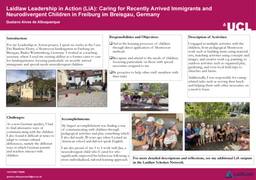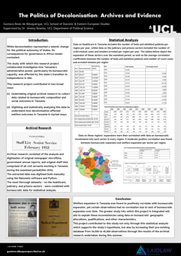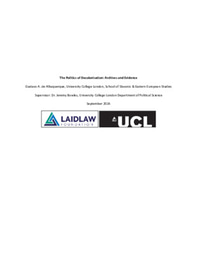Cultural Exchanges in Freiburg, Germany: A LiA Reflection
In my Leadership in Action (LiA) experience, I, a Brazilian national, spent six weeks in Freiburg im Breisgau, Germany, taking care of neurodivergent children in the Casa dei Bambini Ebnet, a Montessori kindergarten school. This experience was profoundly enriching not only because of the cultural exchange I experienced, but also because being in contact with small children allowed me to witness firsthand the local cultural influences on child development.
As someone who does not speak German, I initially thought that this language barrier would hinder my ability to fully comprehend the nuances of the local culture. Instead, what I found was that, at the risk of being cliché, actions speak louder than words. The internal processes of the kindergarten and the manner in which teachers and carers interacted with children, as well as the way in which children interacted between themselves and with adults―yielded deep insights into German culture. I was both positively and negatively surprised by a plethora of these discoveries, which I will share below using stories from my six-week experience. Please note that I will refer to children using different names for ethical reasons.
Firstly, I was positively surprised by the degree to which a strong sense of responsibility is instilled into children of such a young age. In Brazil, I was used to parents and teachers being overprotective and perhaps excessively involved in their children’s lives. For example, when I was a kindergarten student, virtually all parents, including my own, would take us all the way from our homes to the entrance of our classrooms and back, checking if we had all of our belongings and if we needed anything multiple times along the way. Whilst I used to see this as a sign of caring and protection, my LiA experience showed me that caring for children can also mean fostering independence, accountability, and responsibility. I was taken aback when I witnessed three and four year olds riding their own bikes alongside their parents to school, undressing their raincoats by themselves, organizing their own backpacks and lockers, and cleaning up after themselves without barely any need of instruction. I realised that children actually take pride in accomplishing things by themselves, and letting them make their own decisions―and mistakes―is also a form of caring.
On the same note, I was warned that German parents and teachers could be excessively cold, but I actually found them to be the opposite. In my own culture, parents and teachers are usually extremely affectionate; however, this is often juxtaposed by equally intense spurts of rage. Furthermore, whilst in the best of intentions, their treatment of children as children can often stimulate them to remain in an “inferior” position, under their parents’ wings, up to adulthood. I found German parents and teachers to be more emotionally neutral, speaking to children as if they were adults whilst also caring for their different needs. When I first arrived at the Casa, my supervisor told me to speak to the children with the same politeness, tone, and respect I used with her. To my surprise, the children were accustomed to this and spoke to me as equals. I believe that this kind of exchange dignified them―in the sense that they felt as if their needs were as important as anyone else’s.
However, I also believe that Germans’ emphasis on order can sometimes be excessive, particularly for children. Two situations I experienced were particularly alarming for me:
The first one was a conversation I had with my classroom’s head teacher, Angela. She told me that she felt like one of the children, who I’ll refer to as Elya, was not ready to start grade school (for context, German children usually start grade school at age six, but can postpone this to age seven if his/her parents or teachers feel like they are not ready.)
“Why?” I asked. Elya was a very well-behaved and sensitive five year-old, who had no clear learning difficulties and was certainly much more responsible than I was at his age.
“He keeps forgetting to organise his backpack.” She replied, dead serious and visibly worried.
I was quite surprised, because for me the standard is for children to be disorganised, not the opposite. In fact, if I was held to those standards when I was a kindergartener, I would probably never have made it to grade school at all.
The second situation was involving a neurodivergent child I was directly responsible for, who I’ll call Jan. Jan was a recently arrived immigrant from Turkey who barely spoke any German. And, as expected of a neurodivergent child who did not speak German and was raised in a different culture, Jan did not abide by the rigid emphasis on order and cleanliness as much as other children. He was not as well behaved as his peers, nor gave much attention to what the school staff told him.
Perhaps because I was more used to children misbehaving, I was much more patient with him than other staff members. I was surprised to see other staff members display tiredness and even unwillingness to accommodate his needs. It seemed as though him not fitting the orderly model which they were used to was incomprehensible to them, as if children were naturally expected to show no signs of insubordination or disorganisation.
Thus, my impression of these cultural exchanges were twofold. On one hand, I admired the German way of instilling responsibility and accountability in children; on the other, I also found their emphasis on order to be excessive at times.



Please sign in
If you are a registered user on Laidlaw Scholars Network, please sign in